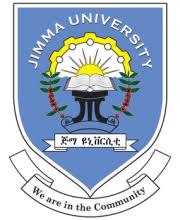Overview
Currently, supervision of routine immunization is being done by the regional and Woreda (District) health officers and mainly focuses on data collection rather than supporting the health workers’ skills and knowledge. Supervision varied across different areas in terms of frequency, level of training of supervisors, location of the supervisor, and use of supervisory tools, such as checklists. The report showed that the average number of regional supervisors in each district is twice per year. Often, supervisors themselves lack skills, tools, and resources and are over-burdened with other administrative duties daily hence the supervision is mostly for evaluation and facility inspection purposes rather than capacity building. In Ethiopia, with the massive investment of the government, the number of health science colleges is increasing exponentially almost one in each of the districts of the country. Health science colleges are academic centers where highly skilled and experienced physicians and nurses are working and practicing. In this project, we are proposing an innovation to introduce medical and health science colleges to continuously build and monitor the capacity of nearby facilities through continuous supportive supervision and mentorship.
Objectives
The primary implementation hypothesis is that Introducing the Capacity Building and Mentorship Program (CBMPI) by medical and health science colleges is feasible, acceptable, and effective. We plan to develop an appropriate implementation strategy that results in fidelity, adoption, and penetration of the health workers’ in-service training programs increases the reach of routine immunization services to every household, and tests the effectiveness of the program by randomized field trial with a hybrid design. Data will be collected at baseline and after the intervention by independent data collectors. Data analysis will be using the implementation science framework and effectiveness will be quantitatively evaluated.
Study Area
This research will be done in selected health facilities in Wogera Woreda. The study participants are health workers at the selected health facilities, the Woreda health office, and immunization focal persons from health centers.
Activities
The package of activities includes the development of supportive supervision and mentorship guidelines, training in continuous supportive supervision and mentoring, and monitoring and evaluation of performance. Training supervisors on supportive supervision and mentoring, which will be the focal point of the package of interventions, will be based on updating supervisors on current policies, new immunization practices, techniques, and management skills, training them on how to coach, mentor, effectively communicate, and conduct performance planning. We will also be introduced to guidelines and tools for supervision. Guidelines and tools for supervision include detailed instructions for conducting supervision and mentoring, namely, sequence for conducting supervision meetings, checklist for supervisory visits, self-assessment for providers, work planning action sheets, do’s and don’ts of supervision, supervisor competencies, giving feedback, resolving conflict, and conducting difficult conversations.
Outcome
In doing this implementation research of introducing the CBMPI, we expect to produce essential data regarding the level and quality of capacity building and mentorship given by the staff of the medical college and its impact on the knowledge and skills of primary health care providers. It also provides data on reaching every child using the previous approach of supervision and our new additional CBMPI program. With the intervention, we would generate data regarding the effectiveness and feasibility of CBMPI implemented by local medical colleges which could be scalable. We expected to look into enablers and barriers for such a new program to scale it into large geographic areas in the country. We will also evaluate its impact on the quality of care and skill of health workers by analyzing our pre and post-data. We will also document the experience of college staff when they provide this capacity building and mentorship support to nearby facilities to use it as input when we design the scale-up guidance document to the ministry of Health.
Collaborators








